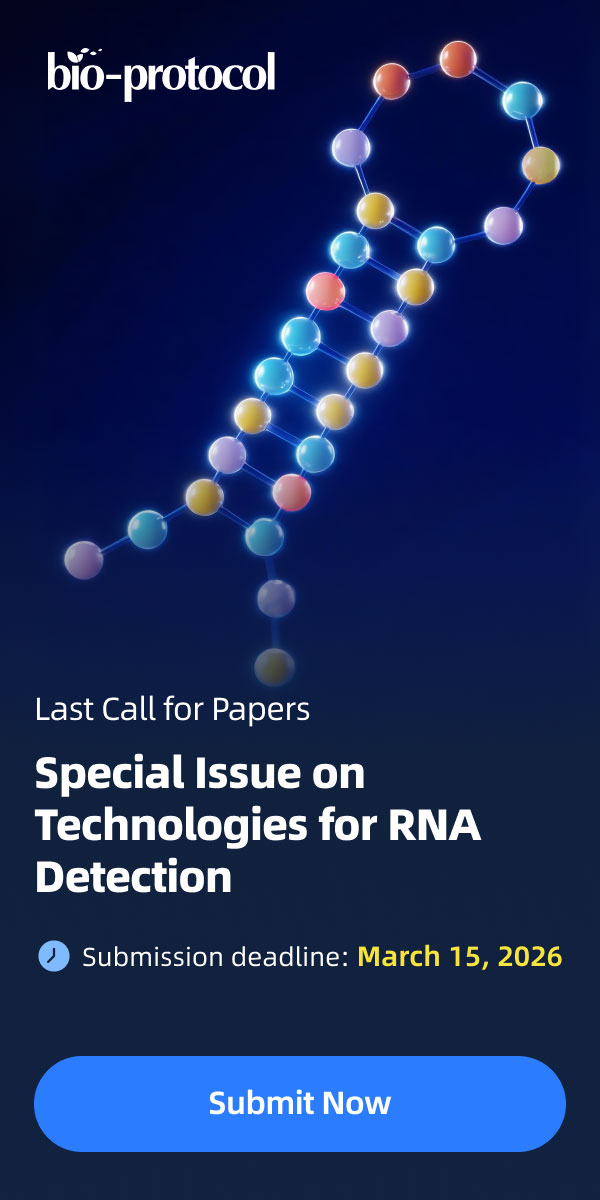- EN - English
- CN - 中文
Determining the Influence of Small Molecules on Hypoxic Prostate Cancer Cell (DU-145) Viability Using Automated Cell Counting and a Cell Harvesting Protocol
使用自动细胞计数和细胞收获方案测定小分子对缺氧前列腺癌细胞(DU-145)生存力的影响
发布: 2016年11月20日第6卷第22期 DOI: 10.21769/BioProtoc.2017 浏览次数: 8045
评审: Antoine de MorreeXiaoyi ZhengPooja Mehta

相关实验方案

利用Cyto-ID®染色和Cytation成像技术定量分析人类成纤维细胞中的自噬小体
Barbara Hochecker [...] Jörg Bergemann
2024年07月05日 1660 阅读
Abstract
Cell viability assays are an essential aspect of most cancer studies, however they usually require a considerable labor and time input. Here, instead of using the conventional microscopy and hemocytometer cell counting approach, we developed a cell harvesting protocol and combined it with the automated Countess Automated Cell Counter to generate cell viability data. We investigated the effects of dihydroxylated bile acids on the cell viability of prostate cancer cells grown under hypoxic conditions. We observed that for all conditions, cell viability was relatively unchanged, suggesting these molecules had little or no impact on cell viability. The combination of the automated approach and the cell harvesting protocol means this assay is i) easy to perform, ii) extremely reproducible and iii) it complements more conventional cancer assay data such as invasion, migration and adhesion.
Background
Determining the therapeutic utility of any biological molecule is a critical step in the development of novel molecular therapeutics to combat cancer progression and development. As a preliminary step in in vitro characterization, molecules must be assessed for their suitability as anti-cancer therapeutics. As part of this assessment, cell viability is a critical determinant of the cellular response to small molecules as it reflects the ability of a molecule to sustain a threshold cell viability, whilst simultaneously targeting key cancer progression mechanisms e.g., clonogenicity, invasion and adhesion. Conventional viability assays require an intensive labor input comprising microscopy, hemocytometers and manual cell counters. Here we developed a protocol for the rapid and accurate generation of cell viability data that will complement cancer research studies (Phelan et al., 2016).
Materials and Reagents
- 15 ml tubes (Thermo Fisher Scientific, Thermo ScientificTM, catalog number: 339650 )
- Blue 1 ml pipet tips (Greiner Bio One, catalog number: 686295 )
- Yellow 200 µl pipet tips (Greiner Bio One, catalog number: 739290 )
- Sterile Eppendorf tubes (Eppendorf, catalog number: 0030119401 )
- Disposable chamber slide
- DU-145 prostate cancer cells (ATCC, catalog number: HTB-81 )
- Dulbecco’s modified Eagle’s medium (DMEM) low glucose media (Sigma-Aldrich, catalog number: D5921-500ML )
- Deoxycholic acid (Sigma-Aldrich, catalog number: D2510-10G )
- 250 mM dimethyloxalylglycine (DMOG) in sterile PBS (EMD Millipore, Calbiochem, catalog number: 400091-50MG )
- Chenodeoxycholic acid (Sigma-Aldrich, catalog number: C9377-5G )
- Phosphate buffered saline (PBS) tablets (Sigma-Aldrich, catalog number: P4417-100TAB )
- Trypan blue (Thermo Fisher Scientific, GibcoTM, catalog number: 15250061 )
- Fetal bovine serum (FBS) (Sigma-Aldrich, catalog number: F6178-500ML )
- Penicillin-streptomycin (Sigma-Aldrich, catalog number: P4333-20ML )
- Glutamine (Sigma-Aldrich, catalog number: G7513-20ML )
- PBS solution (see Recipes)
- Complete Dulbecco’s media (see Recipes)
- 200 µM DMOG (see Recipes)
- CDCA and DCA bile acids (see Recipes)
Equipment
- T25 flasks (SARSTEDT, catalog number: 83.3910 )
- Cell scrapers (SARSTEDT, catalog number: 83.1831 )
- DM0412 centrifuge to accommodate 15 ml tubes (Scilogex, model: DM0412 )
- Water jacketed CO2 incubator (Thermo Fisher Scientific, Thermo ScientificTM, model: Series II )
- Automated pipette filler (Gilson, catalog number: F110753 )
- Countess automated cell counter (Thermo Fisher Scientific, InvitrogenTM, catalog number: C10227 )
- Inverted microscope (OLYMPUS, model: CKX31 )
- Disposable cell chamber slides (Thermo Fisher Scientific, InvitrogenTM, catalog number: C10228 )
- Hemocytometer (Thermo Fisher Scientific, Fisher Scientific, catalog number: 10350141 )
Software
- Excel
Procedure
文章信息
版权信息
© 2016 The Authors; exclusive licensee Bio-protocol LLC.
如何引用
Phelan, J. P., Reen, F. J. and O’Gara, F. (2016). Determining the Influence of Small Molecules on Hypoxic Prostate Cancer Cell (DU-145) Viability Using Automated Cell Counting and a Cell Harvesting Protocol. Bio-protocol 6(22): e2017. DOI: 10.21769/BioProtoc.2017.
分类
癌症生物学 > 细胞死亡 > 生物化学试验
细胞生物学 > 细胞活力 > 细胞死亡
您对这篇实验方法有问题吗?
在此处发布您的问题,我们将邀请本文作者来回答。同时,我们会将您的问题发布到Bio-protocol Exchange,以便寻求社区成员的帮助。
Share
Bluesky
X
Copy link












